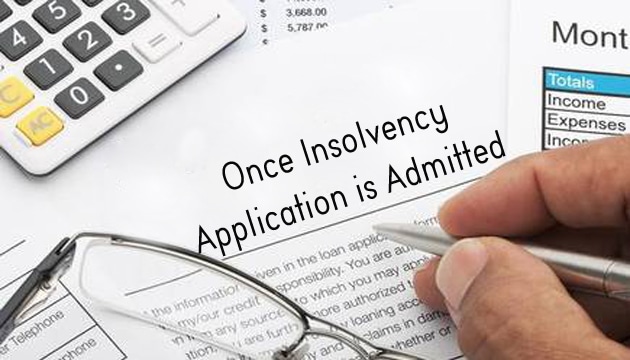
Insolvency and Bankruptcy Code, 2016 (IBC) came into picture to protect the interest of all sorts of the one who are yet to receive their due money, the ones who wish to go under restructuring. The code covers three types of classes’ which are operational creditor, financial creditor and the corporate applicant.
The procedure and method of initiating insolvency by all the classes differ under the code and is governed by different sections. Now, the question arises what happens once the application by a financial creditor or operational creditor or by corporate applicant is admitted before the NCLT which under the code is termed as adjudicating Authority.
The answer lays in section-14 of the Code which states
“(1) Subject to provisions of sub-sections (2) and (3), on the insolvency commencement date, the Adjudicating Authority shall by order declare moratorium for prohibiting all of the following, namely:—
(a) the institution of suits or continuation of pending suits or proceedings against the corporate debtor including execution of any judgment, decree or order in any court of law, tribunal, arbitration panel or other authority;
(b) transferring, encumbering, alienating or disposing of by the corporate debtor any of its assets or any legal right or beneficial interest therein;
(c) any action to foreclose, recover or enforce any security interest created by the corporate debtor in respect of its property including any action under the Securitisation and Reconstruction of Financial Assets and Enforcement of Security Interest Act, 2002;
(d) the recovery of any property by an owner or lessor where such property is occupied by or in the possession of the corporate debtor………”
Now, let us see what does it stands for and what impact it creates. First of all kind of legal proceedings from institution to execution are put in abeyance or say are suspended. Secondly, transfer, alienation or disposal of all assets is also stopped. Thirdly any sort of recovery of property by any owner or foreclosure or any other recovery under Securitisation Act is also stopped. However, Delhi High Court while deciding on the extent of the Section-14 in the matter of Power Grid Corporation of India Ltd. vs. Jyoti Structures Ltd. Ruled that proceedings which bring benefit to the corporate debtor won’t be put to rest. Such proceedings will be ones which either doesn’t actually affect the assets or the ones which increase the asset value.
The whole point of creating a stop under Section-14 is to protect the assets. Once insolvency is set in motion all steps need to be taken in order to protect the assets because ultimately the recovery of claims will be done through it.
Disclaimer – Please note that the above view is based on personal interpretation and for general awareness. The readers are required to take opinion from the Top IBC professionals or Insolvency Professionals before relying on the article. For any clarifications, please write to us at ibc@centrik.in




 join For Updates
join For Updates